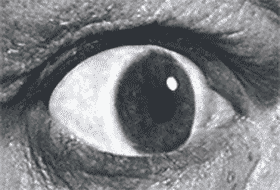(Boston Globe) - Federal air marshals have begun following ordinary US citizens not suspected of a crime or on any terrorist watch list and collecting extensive information about their movements and behavior under a new domestic surveillance program that is drawing criticism from within the agency.
The previously undisclosed program, called “Quiet Skies,” specifically targets travelers who “are not under investigation by any agency and are not in the Terrorist Screening Data Base,” according to a Transportation Security Administration bulletin in March.
The internal bulletin describes the program’s goal as thwarting threats to commercial aircraft “posed by unknown or partially known terrorists,” and gives the agency broad discretion over which air travelers to focus on and how closely they are tracked.
But some air marshals, in interviews and internal communications shared with the Globe, say the program has them tasked with shadowing travelers who appear to pose no real threat — a businesswoman who happened to have traveled through a Mideast hot spot, in one case; a Southwest Airlines flight attendant, in another; a fellow federal law enforcement officer, in a third.
It is a time-consuming and costly assignment, they say, which saps their ability to do more vital law enforcement work.
TSA officials, in a written statement to the Globe, broadly defended the agency’s efforts to deter potential acts of terror. But the agency declined to discuss whether Quiet Skies has intercepted any threats, or even to confirm that the program exists.
Release of such information “would make passengers less safe,” spokesman James Gregory said in the statement.
Already under Quiet Skies, thousands of unsuspecting Americans have been subjected to targeted airport and inflight surveillance, carried out by small teams of armed, undercover air marshals, government documents show. The teams document whether passengers fidget, use a computer, have a “jump” in their Adam’s apple or a “cold penetrating stare,” among other behaviors, according to the records.
George Washington University law professor Jonathan Turley said Quiet Skies touches on several sensitive legal issues and appears to fall into a gray area of privacy law.
“If this was about foreign citizens, the government would have considerable power. But if it’s US citizens — US citizens don’t lose their rights simply because they are in an airplane at 30,000 feet,” Turley said. “There may be indeed constitutional issues here depending on how restrictive or intrusive these measures are.”
Read More . . . .
1984 is Here
kk
"Political tags - such as royalist, communist, democrat, populist, fascist, liberal, conservative, and so forth - are never basic criteria. The human race divides politically into those who want people to be controlled and those who have no such desire."
- - - Robert A. Heinlein
kk
"Political tags - such as royalist, communist, democrat, populist, fascist, liberal, conservative, and so forth - are never basic criteria. The human race divides politically into those who want people to be controlled and those who have no such desire."
- - - Robert A. Heinlein
Read more on the march to 1984:




No comments:
Post a Comment